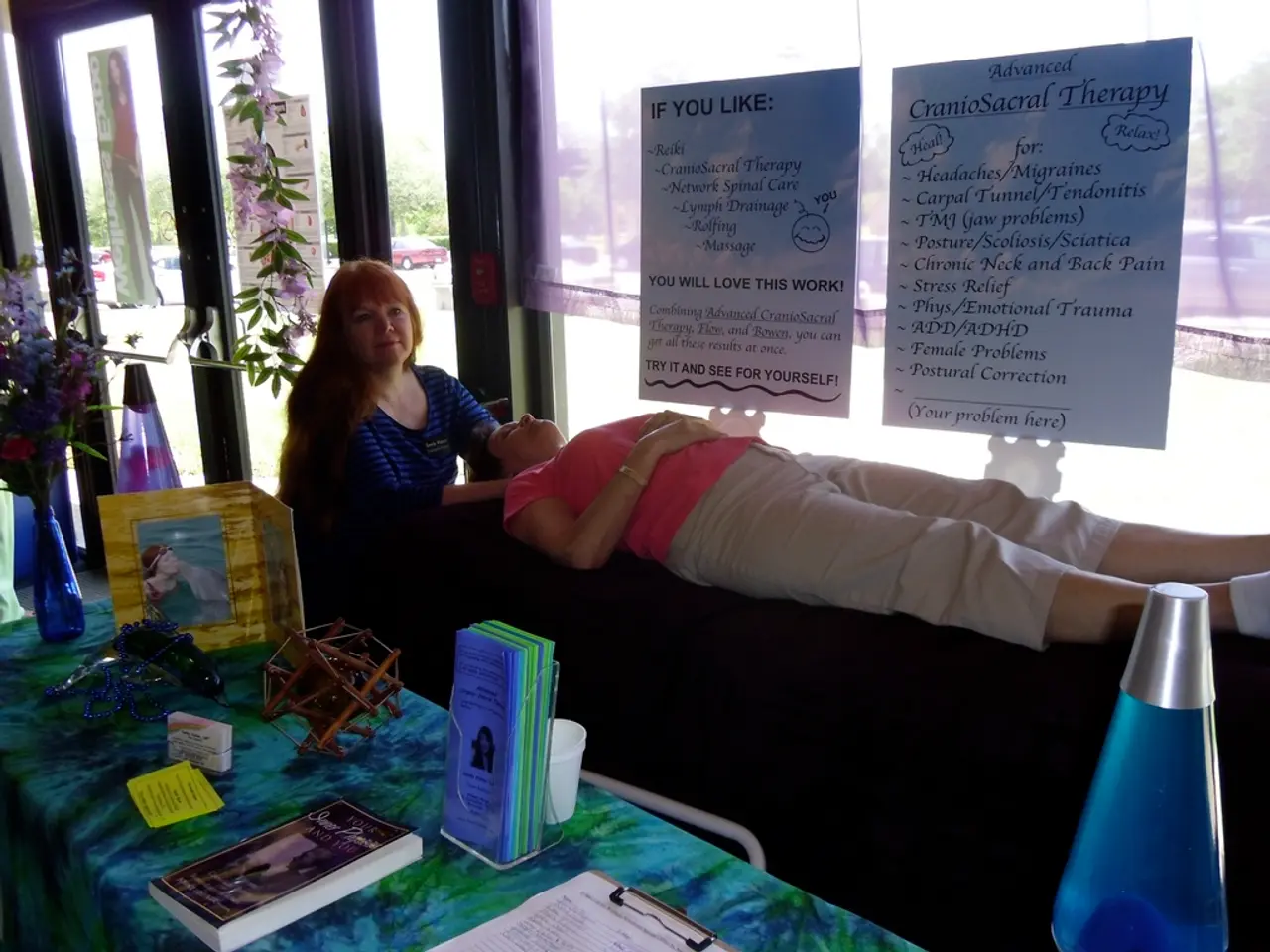Scientists find out that sleep aids in 'erasing' unwanted recollections
Harness the power of sleep to reshape your mind: New study finds a way to strengthen positive memories while weakening negative ones. Sounds like a dream come true, right?
Sleep could be the game-changer in mental health treatment, as researchers have discovered a technique called Targeted Memory Reactivation (TMR) that could revolutionize how we deal with trauma and emotional distress.
By reactivating memories during sleep, this groundbreaking study suggests that we can subtly alter how memories are stored, potentially providing an alternative to medication for conditions like PTSD, anxiety, and emotional trauma.
Here's the kicker: rather than erasing painful memories, sleep seems to overwrite them with positive ones when given the right cues. This contradicts the long-held belief that traumatic memories are permanently ingrained and unchangeable.
The study, published in PNAS, revealed that sleep isn't just a passive state but an active process of emotional regulation and memory refinement. Certain oscillations in the brain, such as theta-band activity, play a crucial role in this process.
If future studies confirm these findings, therapists might eventually use sleep-based interventions alongside existing treatments to help patients reframe distressing memories more effectively.
However, the big question remains: will TMR work on deeply personal or long-standing traumas? The study was conducted with artificial memories, so only time will tell how effective this method will be in the real world.
For decades, psychologists have relied on traditional therapies like exposure therapy to help people manage traumatic memories. But this new sleep-based approach opens up an entirely different dimension in emotional healing.
With further research, we might just unlock the brain's remarkable ability to heal itself-one night at a time. So catch some ZZZs, and let your mind do the magic.
A Closer Look at TMR
TMR is a technique that essentially targets specific memories during sleep to enhance their consolidation. Over the years, researchers have explored the potential of TMR for improving memory and learning. Now, scientists are also investigating its application in treating trauma and emotional distress.
By reactivating memories during sleep, TMR could help individuals process and integrate traumatic experiences better. It might even help reduce the emotional impact of traumatic experiences through the process of memory reconsolidation.
Research has shown mixed results, and TMR may not directly enhance the benefits of other therapies like imagery rescripting. However, when combined with other treatments or conditions (such as napping), TMR could potentially greatly reduce emotional distress.
In comparison to other therapies like EMDR therapy, TMR has not yet shown the same consistent results. But integrating TMR with other therapies, tailoring it to individual needs, and advancing neurotechnology could improve its effectiveness in the future.
In other words, sleep might just be the key to unlocking our minds' potential for healing. So relax, dream, and let your mind work its magic.
Sleep-based interventions, such as Targeted Memory Reactivation (TMR), could transform mental health treatments by helping individuals process and integrate traumatic experiences better. If combined with other therapies and tailored to individual needs, TMR could potentially provide a significant reduction in emotional distress, revolutionizing the health-and-wellness sector, including therapies-and-treatments for conditions like PTSD, anxiety, and emotional trauma.







